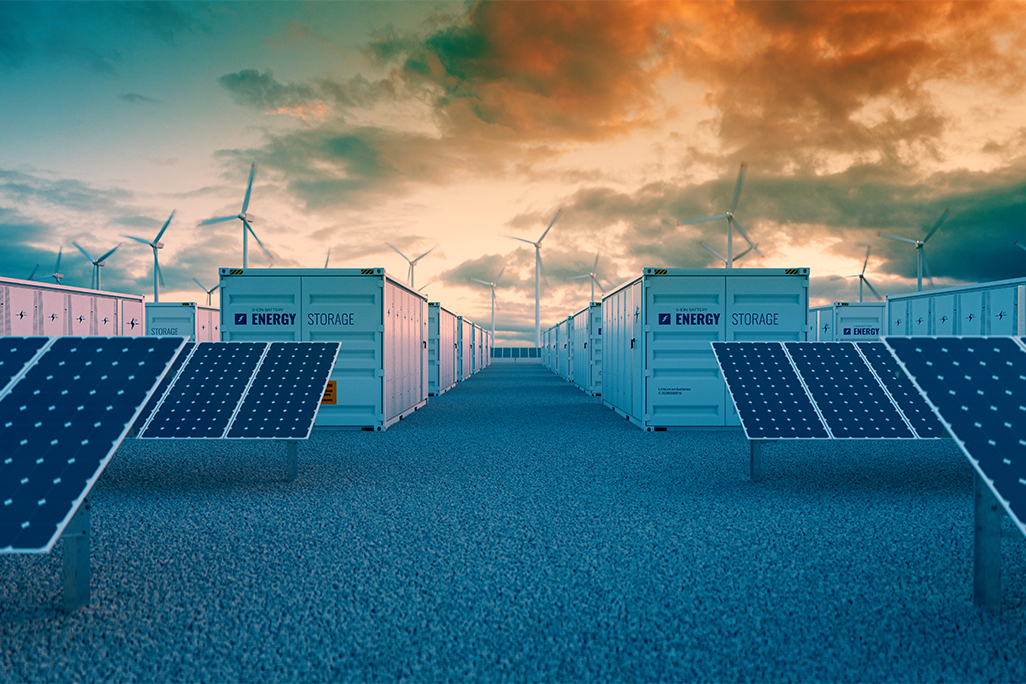More renewables and faster: 2022 closes with more news for the energy sector
Published on 5th January 2023
In addition to the novelties of the last quarter of 2022 in our last newsletter published a few days ago, the year closes with the adoption of two key regulations for the renewable energy sector both in Spain and in the European Union, namely the Royal Decree-Law 20/2022, of 27 December, on measures to respond to the economic and social consequences of the war in Ukraine and to support the reconstruction of the island of La Palma and other situations of vulnerability ("RD-I 20/2022") and Council Regulation (EU) 2022/2577, of 22 December 2022, establishing a framework for accelerating the deployment of renewable energies (the "Regulation").

Below, we summarise the main developments introduced by these regulations.
1. ENERGY DEVELOPMENTS INTRODUCED BY RD-l 20/2022
Making environmental assessment more flexible
An exceptional and transitional procedure is regulated, which determines the environmental effects to which renewable energy projects under state jurisdiction that begin their processing as of 28 December 2022, the date of entry into force of this regulation, will be subject. In this respect:
- The promoters must submit a request, to the substantive body, for the determination of the environmental impact, together with an environmental impact study, an executive summary quantifying the accredited impacts of the project, and a preliminary project design.
- Once the documentation has been completed, the file will be forwarded to the environmental body, which must decide on the environmental effects within a period of ten days. Failure to respond within this period will be considered as acceptance of the content of the proposed report for the purpose of continuing the proceedings. In any case, the environmental body will decide within two months on the environmental impact report, which will lose its validity and cease its effects if the project is not authorised within two years of its notification to the developer. This report will determine whether the project must be submitted to the environmental assessment procedure or not.
Projects whose location is planned in: (i) areas that form part of the Natura 2000 Network; (ii) marine areas; and (iii) protected natural areas, may not be subject to this environmental impact procedure. Nor may evacuation lines with a voltage equal to or greater than 220kV and a length of more than 15km be subject to this procedure.
Acceleration of the projects authorisation procedure
Secondly, a simplified authorisation procedure is regulated for those renewable energy generation under state jurisdiction projects that have obtained a favourable environmental impact assessment report. The procedure is as follows:
- Joint application and resolution of prior administrative authorisations (AAP) and construction authorisations (AAC) and reduction by half of the periods for public information and consultation of the different administrations.
- Once the formalities have been completed, the complete dossier shall be sent to the Directorate General for Energy Policy and Mines within fifteen days for its resolution.
- If it is necessary to apply for a declaration of public utility, it must be submitted together with the application for the prior administrative authorisation and the construction authorisation.
Both the environmental impact assessment report procedure and this procedure for accelerating projects authorisation will apply to projects that begin their processing after the entry into force of the Royal Decree-Law and until 31 December 2024. Procedures in progress at the time of entry into force of the Royal Decree-Law will continue to be governed by the previous regulations.
Measures on self-consumption
RD-l 20/2022 amends Royal Decree 244/2019, of 5 April, which regulates the administrative, technical and economic conditions for the self-consumption of electricity, extending collective self-consumption to 2,000 metres and allowing self-consumption on industrial land or in existing or future artificial structures whose purpose is not electricity generation.
Suspension of the processing of projects in nodes reserved for access capacity tenders
Exceptionally, from the entry into force of the RD-l, the processing of projects in the nodes reserved for access capacity tenders is suspended for eighteen months. This suspension affects the submission of the receipt certifying that the financial guarantee has been deposited, the submission of applications for the AAP and AAC, and in environmental matters, the presentation of documentation on the scope of the environmental impact study and the determination of the environmental impact of the project.
The suspension does not affect projects that:
- Have access and connection permits.
- Are hybridised projects in accordance with the criteria of Article 27 of Royal Decree 1183/2020.
- Have submitted an application to a node prior to the decision agreeing that an access capacity tender shall be held at that particular node and provided that such application has not been refused or rejected by the system operator.
- Have applied for an access and connection permit pursuant to Article 8 of Royal Decree-Law 6/2022.
Fiscal measures
The following are extended until 31 December 2023:
- The Suspension of the Tax on the Value of Electricity Production.
- The reduction to 5 percent of VAT on all components of the invoice for the supply of natural gas, as well as the supply of briquettes or pellets from biomass and firewood used as fuel in heating systems, in order to reduce the amount of VAT.
- The reduction to 5 percent of the VAT on certain electricity supplies in order to reduce household electricity bills.
With regard to the Special Tax on Electricity, the 0.5 percent tax rate is extended.
Modification of the transmission grid planning
Before 31 March 2023, the Government will initiate a modification of specific aspects of the development plans of the electricity transmission grid planning in order to include those urgent actions that are strategic and a priority for the energy transition and that allow for the development of the industrial value chain. Exceptionally, the actions included in the planning may be partially financed by the funds of the Recovery, Transformation and Resilience Plan if they contribute to its objectives and are in accordance with the European Union regulations.
Extension of the concept of "foreign direct investment"
The concept of "foreign direct investment" is broadened to expressly cover all investments whereby control is acquired over "all or part" of a Spanish company (thus including not only the acquisition of control of companies, but also the acquisition of assets or branches of activity).
Extension of the transitional regime for the suspension of the liberalization of certain foreign investments
Royal Decree-Law 34/2020 is amended to extend until December 31, 2024, the transitional regime of suspension of liberalization of certain foreign direct investments in listed companies in Spain, or in unlisted companies if the value of the investment exceeds 500 million euros, made by residents of other countries of the European Union and the European Free Trade Association.
2. RENEWABLE ENERGY FOR AN ENERGY INDEPENDENT AND SUSTAINABLE EUROPEAN FUTURE
In the context of the war in which the European Union finds itself, the recently approved Regulation aims to alleviate the deterioration of the electricity market situation, guarantee electricity supply, and reduce dependence on fossil fuels from Russia, all within the framework of the European Green Pact and the EU REPower Plan.
To this end, this regulation establishes a series of urgent temporary rules to accelerate the permit granting process for renewable energy projects whose permitting procedure is initiated while the regulation is in force, i.e., from 30 December 2022 until eighteen months after its entry into force, without prejudice to subsequent reviews and, where appropriate, extensions. Likewise, Member States may apply the Regulation to ongoing authorisation granting processes in which no final decision has been taken before that date, provided that the authorisation granting process is shortened and the pre-existing rights of third parties are preserved. The most relevant measures introduced are as follows:
Presumption of overriding public interest
The planning, construction and operation of plants and installations for the production of energy from renewable sources and their grid connection infrastructure, as well as the related grid and storage assets themselves, shall be presumed to be in the overriding public interest. However, Member States may restrict areas of their territory where it is not possible to implement renewable energy projects or with certain characteristics.
Acceleration of the authorisation process
The period for granting permits for the installation of solar energy equipment and co-located energy storage assets, including building-integrated solar installations and rooftop solar energy equipment, on existing or future man-made structures, excluding areas of artificial bodies of water and heat pumps, shall in general be three months, subject to exceptions.
Relaxation of the environmental assessment procedure
In cases of repowering energy installations, it will not be necessary to carry out an environmental assessment of the project as a whole, but only of the impacts derived from the repowering with respect to the original project, and photovoltaic energy repowering projects that do not exceed the original space and that comply with the corresponding corrective, compensatory and preventive environmental measures established for the original installation will be exempt from any environmental procedure.
In addition, Member States may exempt renewable energy projects, as well as storage projects and their disposal infrastructure, from the environmental impact assessment procedure, provided that the project is located in an area designated for renewable energy deployment or the area has been subject to a strategic environmental assessment.





